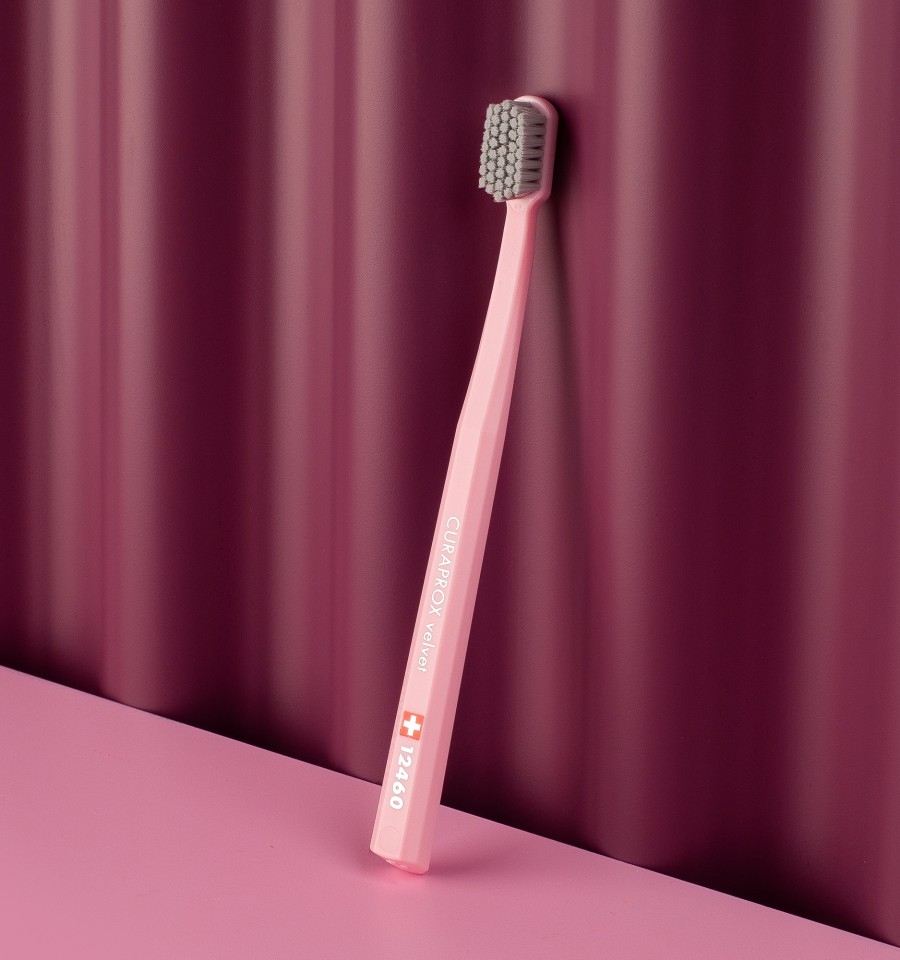We deny four of the most common arguments from hard brushers
[ No, your gums don’t need a massage. ]
Our role as dentists is not only to heal oral cavities. Educating patients, explaining the right oral care routines to them, and also negating the myths they believe in is at least as important as the treatment we provide in the dental chair.
Together with Prague-based dentist and iTOP lecturer Dr. Lucie Sedelmayer, let’s have a look at some counter-arguments that you can use when communicating with those who still believe that a hard toothbrush is the best and only way for proper oral care.

Patient’s misbelief #1:
I don’t use soft toothbrushes; harder ones clean my teeth better
“A soft, dense toothbrush will clean your teeth more effectively because the surface of the bristle field is larger and the bristles are more flexible, allowing you to get into various hard-to reach grooves, crevices, and uneven dental spaces. More importantly, this type of brush won’t damage your teeth or gums. You also don’t have to push down too hard on the brush in order for the bristles to get past convex surfaces, so using a lighter pressure means you won’t harm your teeth or gums, and you won’t end up damaging the brush,” says Dr. Lucie Sedelmayer.

Patient’s misbelief #2:
“Soft toothbrushes wear out too quickly. Harder brushes last longer.”
“They don’t wear out too quickly because the softer the brush, the less you have to push down on it,” is the dentist’s simple argument. You should keep telling your patients that less pressure is better for their teeth and gums and besides this – gentle brushing helps to keep even the softest toothbrush in its perfect form for longer.

Patient’s misbelief #3:
“I’d rather brush my teeth quickly. If I brush my teeth for too long, my gums start bleeding.”
“Bleeding only occurs when gums are inflamed. It has nothing to do with how long you brush. When gum bleeding occurs a proper brush is vital – your regular toothbrush has to be as soft and dense as possible and your interdental brush should be perfectly suited in size for each of your interdental spaces. However, that being said, it’s also necessary to know the right technique to brush using the right tool,” Dr. Sedelmayer points out.

Patient’s misbelief #4:
“A harder toothbrush is better because it massages my gums better.”
“There is no need to brush your gums, let alone massage them. Plaque does not stick to gums, and unlike teeth, gums naturally desquamate. However, it’s necessary to brush the groove between the tooth and the gums. You don’t need to massage your gums at all as they are well perfused. Trauma inflicted onto the gums with a hard toothbrush can lead to irreversible atrophy of the gums and the entire oral structures that support your teeth,” the dentist explains.

Let your patients enjoy the most gentle experience
The only Swiss-made toothbrush with 12 460 Curen® filaments is the perfect tool for gentle oral care. The Velvet range will be appreciated by anyone who enjoys the ritual of soft toothbrushing and the clean feeling afterwards, including those patients with sensitive gums.